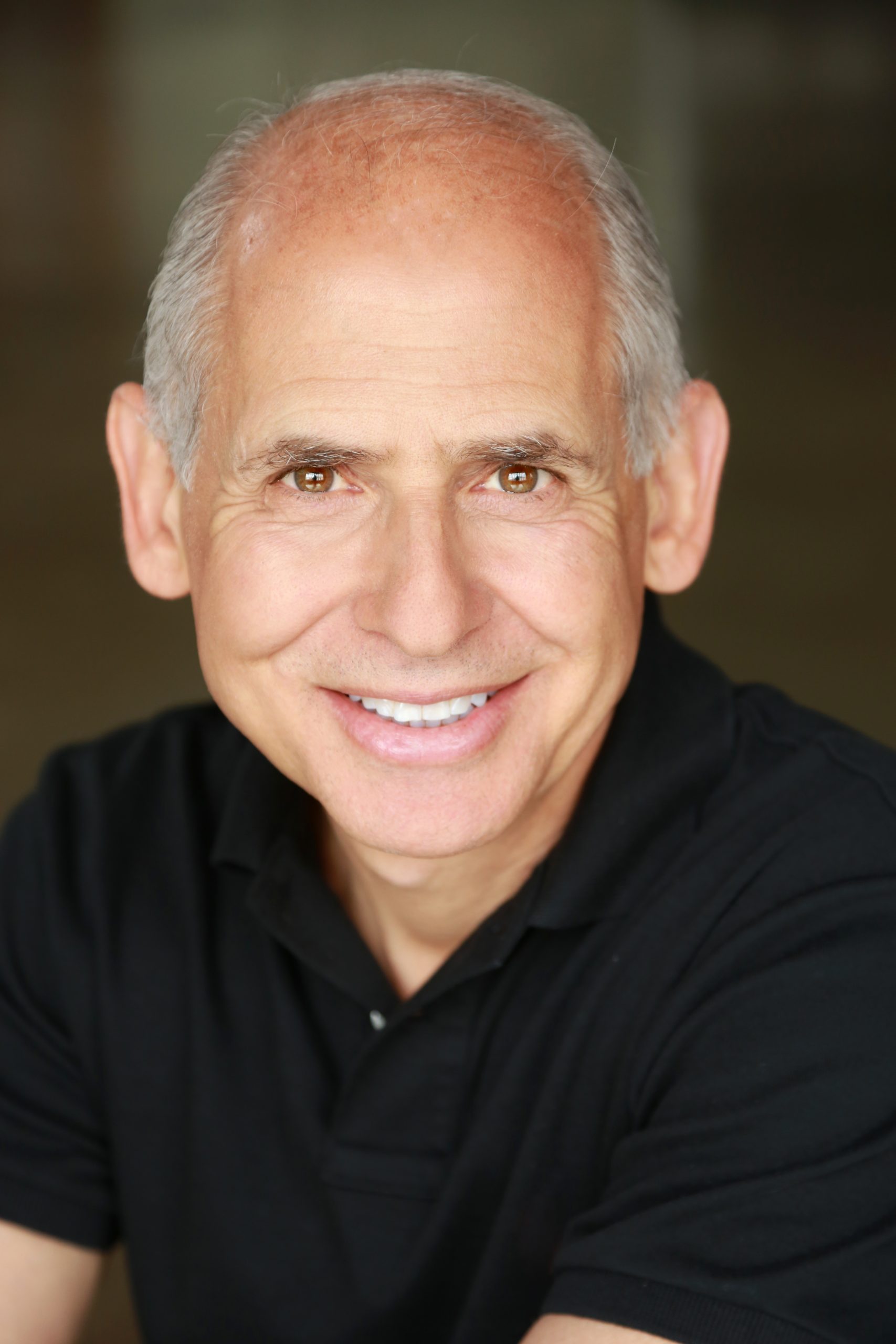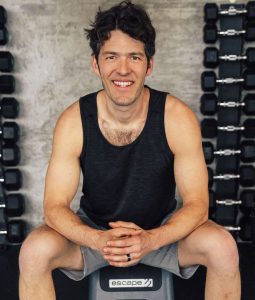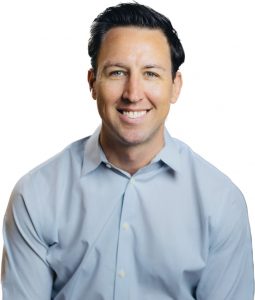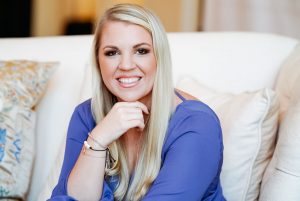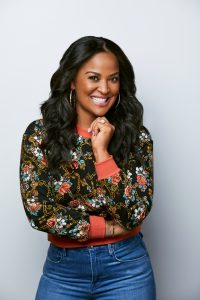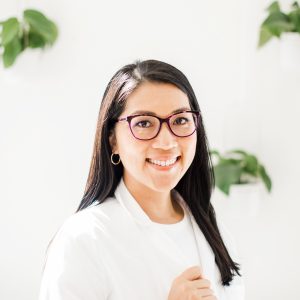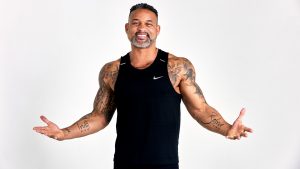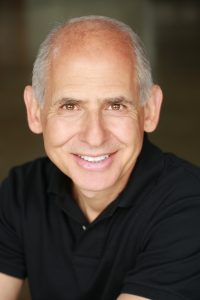SHAWN STEVENSON: We’ve got one of my greatest mentors and a good friend and somebody who is going to be able to speak to mental health for our families, for our children. We have the incredible, the legendary superhero, Dr. Daniel Amen. How are you doing today, Daniel?
DANIEL AMEN: Good Shawn. So great to see you as always.
SHAWN STEVENSON: Yes, yes. Well, I appreciate it and I appreciate you taking the time for all of us. Let’s start things off with the big meta question. Why is family health and wellness important to you?
DANIEL AMEN: Well, ’cause it’s not just about me, it’s about generations of me. And the healthier I am, the healthier I model appropriate behaviors, the better my relationship with my wife, with my children, with my grandchildren. What is most important to me is my loved ones and their health.
SHAWN STEVENSON: Yeah, I knew you were gonna say that, of course. It’s really… It’s your North Star and it’s so much bigger. Now, obviously mental health conditions are tied to something bigger we’ll get to in a moment. But if you can address for us, just kind of lead us in and talk a little about why mental health conditions have seemed to gone up, been going up precipitously in recent generations. What do you think is going on there?
DANIEL AMEN: You know, I think there’s a number of factors. Infections, of course, social media, the low quality food, the gadgets that people are addicted to, which decreases exercise. And gadgets, people go, “Oh well, we’re more connected than ever.” We’re actually more disconnected. Loneliness is a bigger issue than ever in our lifetime.
SHAWN STEVENSON: Yeah, it’s a lot, it’s a lot getting thrown at us. So thank you for pointing that out. Infectious diseases can lead to mental health conditions obviously. And this is something I was talking with your wife, Tana, about recently, are adverse childhood experiences or events can start to compound and sometimes we don’t realize that we’re operating from that place. But also you’ve talked about just the environment itself has changed dramatically in the last couple of generations with social media, their diet, are some of those other issues playing a big part in this kind of mental health schism that we’re experiencing?
DANIEL AMEN: Diet for sure, is fast food has proliferated, the incidents of mental health challenges has proliferated. And so the toxins in food, gluten, dairy, artificial diets, sweeteners, I think diet, you know, if I had to like put my top 10 reasons for this explosion in mental health issues, diet would be there for sure. And then other toxins, like we bathe kids in sunscreen that have toxins in them. And so the dermatologists one, they made us afraid of the sun and now we’re bathing people with a lot of poison, and so we’ll have to be really careful. So that would be in the top 10. The negative news cycle, social media, digital addictions. And now I don’t know if you know, but obesity in children has skyrocketed and 20% of kids are overweight or obese. And I published three studies that shows your weight goes up, the size and function of your brain goes down. So being overweight and I get lots of controversy about that. It’s like, “Oh, you’re fat shaming.” It’s like, “No, I’m not, I’m just telling you the truth that if we let ourselves go, there are brain and mental health consequences with that.”
SHAWN STEVENSON: Yeah. And we don’t think about that, especially again with our kids. And there’s this concept of recidivism and it gets more and more difficult. A lot of folks that might’ve grown up struggling with their weight know that there’s a much higher propensity to experiencing weight struggles when you get older. And now we know as you just mentioned, that this is gonna impact our brain health. And so I’m so glad that you brought up the exposure of different auxins. There’s a lot of newly invented chemicals that are in our food supply, personal care, and we don’t just, we don’t think about it and we don’t have very good systems of regulation at this point. And this is why this summit is so important because we need to take it upon ourselves to get agitated. And it’s not to villainize any of these things, it’s just to be aware that we’re living at a very different time right now. And a lot of things that we’re doing are social experiments. So slathering ourselves up with, you know, I just took my family on vacation recently and I saw a lot of purple people.
SHAWN STEVENSON: And these folks were not… Their skin complexion was not purple, but they were putting on so much of the sunscreen that it was turning them into looking like California Raisins essentially. And it’s just like we absolutely need to be cautious, but we don’t need to venture into idiocy and also potentially hurting ourselves and missing out on the essential input that we get from interaction with the sun, healthy doses of sunlight and vitamin D. That’s important for our brain health as well, right?
DANIEL AMEN: Absolutely. And then also in the top 10 is parental stress. Is people are sort of more stressed now than ever and children are like violins and that they play the stress of their parents.
SHAWN STEVENSON: That’s powerful. Children are like violins. Wow, that’s powerful. All right, I think one of the most important aspects of your work and why I really am excited to have you here is making this very important distinction that a lot of us don’t think about. I know that I didn’t, and when we’re talking about mental health, we are really talking about brain health. So what do parents need to know about the connection between mental health and brain health?
DANIEL AMEN: So I have 11 clinics around the country and we do imaging in our clinics, brain imaging. We do a study called Brain SPECT Imaging that you’ve had. And we’ve gathered about 250,000 scans on people from 155 countries. And what the scans taught us is that most psychiatric problems are not mental health issues, they’re brain health issues, get your brain healthy and your mind will follow. And this changes everything, because now you go to a psychiatrist or your family doctor and you say, “I’m anxious.” and they give you anti-anxiety medicine and you say, “I’m depressed.” And they give you an antidepressant or say you can’t concentrate, so they give you a stimulant. And when you look at it through a brain health paradigm, you go, “Oh, you’re depressed. What’s going on with your brain?” I have to check your thyroid, I have to check for inflammation, I have to make sure I feed it right, I have to make sure I protect it.
DANIEL AMEN: It’s a completely different paradigm. So I hate the word mental, it shames people, it’s stigmatizing and it’s wrong. Call someone mental, it’s not a good thing. Call them a brain and you elevate them. Everybody wants a better brain, nobody wants mental illness. And so if we just change the language, we actually change the strategies to be well. And so I think of the brain, physical functioning of the brain, like the hardware of your soul, or the hardware of a computer. You gotta get that right first and then you still have to program it, which is where things like killing the ANTs, the automatic negative thoughts, that steal your happiness come in. Dealing with past emotional trauma, imagining or visioneering a positive future. But it first starts with a healthy brain.
SHAWN STEVENSON: Yeah. Thank you for that. You’ve changed so many lives and mine included that reframe with something that is true. It’s real because with mental health and the stigmas around that, it’s just, it’s very disempowering. It’s just like you have this mental health issue, this mental health disease, and that’s your identity. With brain health, we have so much more agency and there are so many things that we can do and oftentimes avoid. And I wanna talk about some of these things because we can have mental health, what we see outwardly as mental health issues related to trauma to our brain, but also these exposures, and these can be micro exposures. So when you brought up toxins and personal care products for example, you are looking at things through the lens of how is this affecting our brain? And that’s what I love so much about your work. Let’s talk about some of the things that parents should be aware of when it comes to protecting and supporting our kids’ brains. And I know you very well, I know who you are. Just give it to us straight, we don’t have to sugarcoat anything, just let us know.
DANIEL AMEN: Well, you shouldn’t let your children hit soccer balls with their head or play tackle football. Your brain is soft, skull is hard, skull has sharp boney ridges. Even one concussion increases the risk of becoming psychotic later in life, 600%. So protecting their brain is really important and then feeding their brains. I used to play a game with my daughter called Chloe’s game. And basically I would just say something and I would go, good for your brain or bad for it. And if I said avocado, she’d say, “Two thumbs up, God’s butter.” If I’d say blueberry, she’d put her hands on her little hips and go, “Are they organic?” Because non-organic berries hold more pesticides than almost any fruit. I’m like, “Of course they’re organic.” She goes, “Oh, two thumbs up, God’s candy.” Or if I said, “Talking back to redheaded mother.” she would go, “No, very bad for the brain.” And so teaching them about what’s good, what’s bad.
DANIEL AMEN: Diet soda is not good for the brain, it actually increases the risk of obesity and diabetes. So you think of diet soda as free. Well, it’s got chemicals in it, makes it not free. That there’s a cost to it. The one surprising thing for parents is, I was watching Good Morning America and George Stephanopoulos was on. And he felt so good about himself as a parent ’cause he got his kids as they went through the drive-through to get orange juice. And whenever you unwrap fruit sugar from its fiber source, it turns toxic in your body. That give them an orange, awesome, don’t give them the juice, not great.
SHAWN STEVENSON: Okay. Great couple of inputs here. Now, obviously, and myself included, there are gonna be a lot of parents who have their kids in various sports, in soccer, in football, these are very popular in culture. But we just need to be aware, we need to come into this with a sense of awareness about these things. And actually, my youngest son Braden played soccer for maybe three years up until they started to do practice heading the ball, that’s when we switched over to another sport. And my older son was already playing football when I met you and became aware of this stuff. And it wasn’t, again, it was like one of those things of, I know the issues here, the potential downsides, but we gotta approach this stuff with a little bit more intelligence. And one of the things you’ve been doing also is just helping to educate people on, people that have gone through playing in the NFL for example.
SHAWN STEVENSON: You contributed a lot to that study and looking at their brains and now looking at what are some things that we can do if our brain has suffered some of these insults. And that’s what I wanna talk about now. So whether we have something that is impending, whether we’re playing a sport or whether we’re having these exposures, what are some of the things that we can do as parents to fortify our kids’ brains outside of the protecting them from the insults, but are there certain key nutrients? Are there certain practices, maybe mental game, psychological things that we can do? What are some of the things we can do to help our kids’ brains?
DANIEL AMEN: Well, what I did in my NFL work is I put people who had had pretty serious damage to their brain, multiple vitamin fish oil, brain boost. 80% of my players’ brain showed improvement. So pretty simple. I mean, a really great multiple vitamin, high dose, high quality fish oil, and then a brain boost that worked in six different ways. So nourishing the brain is important, and I think for all kids, multiple vitamin fish oil, know their vitamin D level and then optimize it, especially if they have darker skin. So people of Hispanic or African American descent, they need way more sunlight to get a healthy vitamin D level than Northern European people. And I think everybody should measure their vitamin D and then work to optimize, I mean, I have to take. So the RDA, the recommended daily allowance is 400 international units a day. Well, I take 7,000 and that’s what gets me to a high normal level, ’cause you and I never wanna be normal. We always wanna be optimal, you know, how optimal can we be? And when you’re looking at blood tests like that, you don’t want to go, “Oh, what’s the normal range?” you wanna go, “Hey, what’s the optimal range?” And vitamin D is just so easy, so simple and so effective.
SHAWN STEVENSON: Awesome. Thank you for that because, again, a lot of times when we see symptoms of mental health struggles with our kids, we are unfortunately not looking at the basics, right? So basic nutrients that support the health of their brain in cognitive function. You mentioned the omegas, you mentioned a good multivitamin, food-based, ideally, you mentioned vitamin D. These are all critical, critical. If we’re not checking these boxes and we’re looking elsewhere, we’re kind of missing the point. And also thank you for mentioning the sugar aspect earlier too. Again, this is a very pop thing in our culture, fruit juices, I grew up with it. When Capri-Suns hit the scene, I was all about it. It was like a… It was a revolution in juicing. And so being aware of that, like let’s focus more on the real whole fruit and minimize the fruit juices if at all possible. And again, just being able to keep this in context, and why does this matter specifically for the brain to not bring in a lot of sugar at one time.
DANIEL AMEN: A brand new study out this week, they looked at people and divided them into four quarters. The highest quarter of sugar intake, the lowest quarter, the highest quarter had double the risk of Alzheimer’s disease. So this is a big problem. Sugar is pro-inflammatory, it’s addictive and it causes a lot of problems, and it’s everywhere. On average, I think Americans consume about 150 pounds of sugar a year. And so I always want my patients to ask themselves this question when they’re going to eat something. And I ask kids this as well, “Do you love it? And does it love you back?” ‘Cause you are in a relationship with food. That’s why I love your new cookbook because I love the recipes and they love me back.
SHAWN STEVENSON: That’s what it’s all about. If we could just start to ask that question when looking at what we’re gonna eat, that’s very powerful, I love mental cue. I want to ask you about one of the things that we’re seeing in a significant amount in kids today. And again, this is one of those things, talking with a bunch of researchers that has gone up precipitously is ADD and ADHD. And thankfully you’ve highlighted that again, this isn’t just this one size fits all diagnosis. This can actually have multiple variations of it and it’s gonna depend on brain health. So can you talk a little bit about some of the important insights about ADHD parents might not realize?
DANIEL AMEN: Wow, the first thing I realized when I started studying it is, it’s not one thing, it’s seven different things. Give everybody a stimulant, you make some people better, but you also make a lot of other people worse. So left untreated, it has pretty significant consequences, but the first thing to do is not medicine, the first thing to do is diet. Take their gadgets from them before they go to bed. So many of my young patients, the parents just give them their phones or their iPads and they stay up till two or three o’clock in the morning. If you don’t sleep, you have ADD, I mean you’re gonna have ADD. If you’re addicted to a gadget that steals your dopamine, you’re more likely to have ADD. So, and then I would put them on elimination diet, eliminate gluten, corn, soy, dairy, artificial diets and sweeteners. Just do it for a month and about 30% of kids will get remarkably better. And if they need medicine, it’s like glasses, right? You never withhold glasses from somebody who can’t see, but it’s never the first and only thing to think about.
SHAWN STEVENSON: Awesome, awesome. Can you give a book recommendation? You have a slew of New York Times bestselling books and incredible resources. Can you give a book recommendation for parents specifically?
DANIEL AMEN: Well, I have a brand new book coming out in March called Raising Mentally Strong Kids. And I’m very excited about it. Of all the books I’ve published over the years, I mean, I’ve talked about kids in it, but never one has been one just for parents. And I’m also a child psychiatrist and I think one of the most effective things I do as a child psychiatrist is get parents to become more connected with their kids and more effective with their kids.
SHAWN STEVENSON: And I love it. Both of us even though we don’t talk all the time, we’ve just been on the same frequency. You’re creating something that supports kids and that’s what my recent project was as well, and several other of our colleagues. There’s something that is brewing right now and I love the quote that there’s nothing more powerful than an idea whose time has come. And it’s taking back our power, helping to create healthy conditions for our kids. And yeah, we’ve got a lot of really special things coming up. And I’ve got one last question for you, and this is gonna be based on you and your lifestyle and how you’ve created a culture of health in your own household. What are three things that you’ve done, three things that you’ve done to create a culture of health and connection within your family?
DANIEL AMEN: So I live it. I mean, it’s the most important things parents can do, is live the message. If you don’t live the message of your life, so for me it’s health, you suck as a messenger. So that’s number one. Two, I only spend money on things that will support your health. People, kids go, “Oh, I want this or I want that.” Or parents will go, “Oh, they won’t eat anything but cocoa puffs for breakfast.” It’s like, “They’re not gonna starve.” Breakfast was actually developed by the Kellogg’s company, the idea. So I’m like, “No, they won’t starve.” So have good boundaries over what you buy. And then if you really wanna have influence with your kids, spend 20 minutes a day with them, just be in their space. Listen way more than you talk. And as you build that bond, kids will want… The kids are more likely to pick your values.
SHAWN STEVENSON: I love it. I love it. And I can’t let you go without you sharing your gratitude practice and how you stay on the lookout for things to be grateful for.
DANIEL AMEN: Yeah, it’s called What Went Well. Every night before I go to bed, I say prayer of gratitude and then I go hour by hour in my day until I go to sleep looking for the moments that made me happy. And it’s not a time for worry, it’s not a time for disgust, it’s a time of happiness and joy. And so I look for even the micro moments of happiness, a butterfly, a hummingbird. I live on the Bay, so having a sea lion come by. Looking for those moments is a practice that if you do it for three weeks, your level of happiness will go up significantly. I’ve done it for 10 years and it’s one of the favorite parts of my day.
SHAWN STEVENSON: I love it. And this is gonna be a part of my appreciation later today when I close things up and I’m so grateful for you and for your work. And of course we’re gonna connect people to your social media and your incredible books. We’ll put some links for everybody with some book recommendations that are a little bit more geared towards supporting our children’s mental health. But anything that helps our mental health is gonna help our kids’ mental health, as you stated earlier, which we might look past. Our kids are violins and so what kind of director are we as far as being a director of our orchestra in our household? And if you can, can you just let everybody know the best place to connect with you if they want to do, for example, get a brain scan or just get more education.
DANIEL AMEN: So go to amenclinics.com. Amen, like the last word in a prayer clinics.com.
SHAWN STEVENSON: Easy breezy. Thank you so much for sharing your time with us today. You’re the best. I appreciate you.
